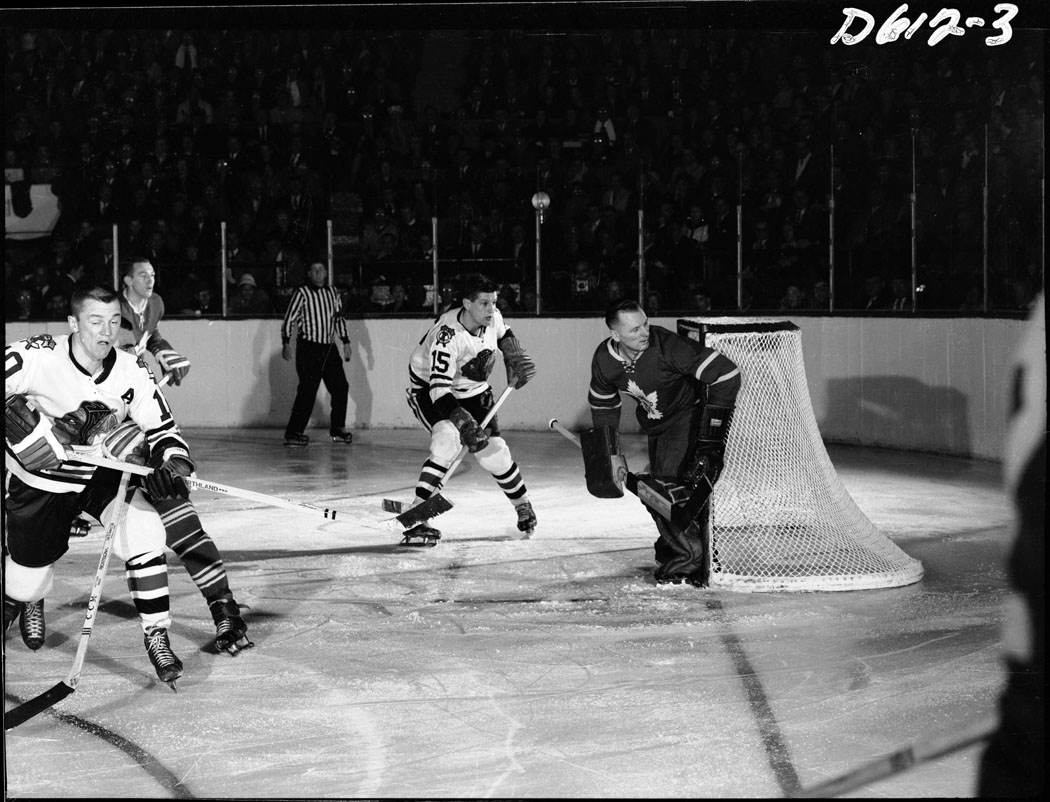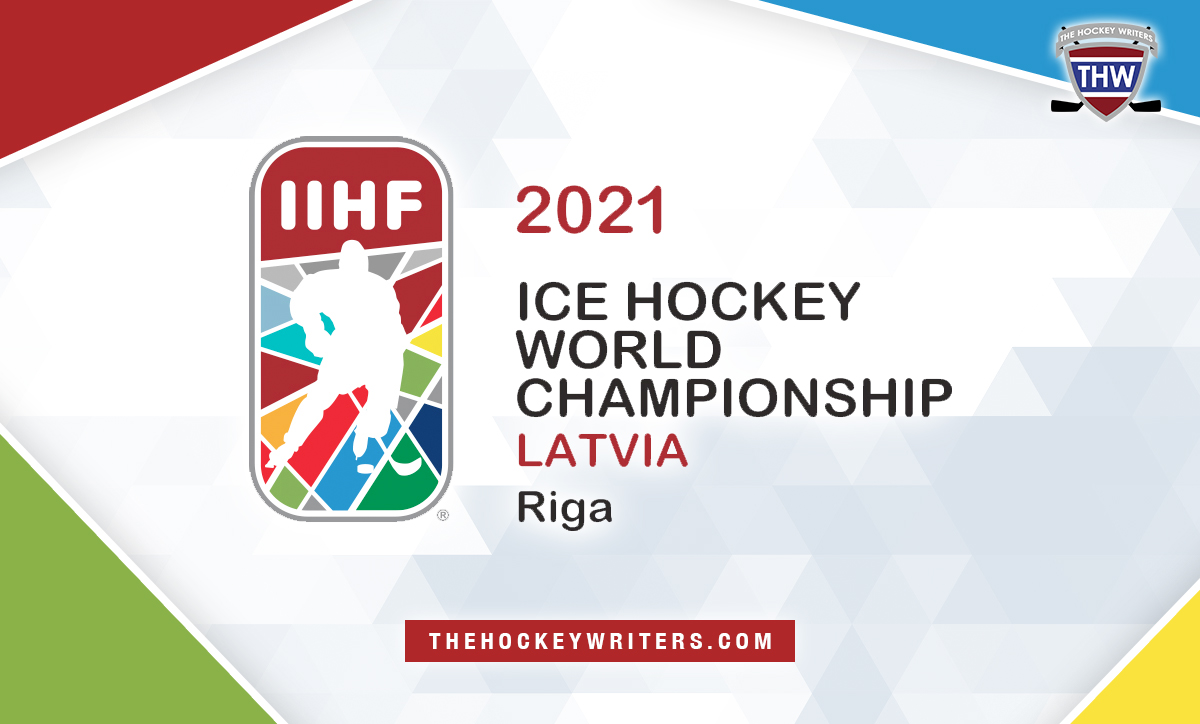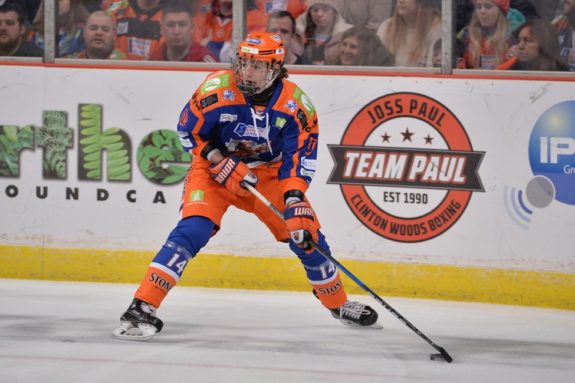1962 is a long time ago. Back then, the NHL had only six teams. That year, the Toronto Maple Leafs won the Stanley Cup and, goaltender Jacques Plante won the Vezina Trophy and the Hart Memorial trophy. He probably would have won the Conn Smythe, too, if it had been awarded, but they didn’t start awarding that trophy until three years later. John F. Kennedy was president of the United States that year, the Cuban Missile Crisis scared the hell out of everybody, and the Beatles released their first single.

On the 9th of March, 1962, the Great Britain Men’s National Ice Hockey Team defeated Finland by a score of 7-5 at the 29th Ice Hockey World Championships in Colorado Springs. It was the final time in the 20th century that they would win an Ice Hockey World Championship top division game in regulation. That streak dating back to March of 1962 was finally broken when they defeated Belarus on May 26, 2021. The story of Great Britain’s return to the top division of the International Ice Hockey Federation (IIHF) is a charming underdog story. It has been spearheaded by a cast of dedicated men, of varied ages, with the singular goal of playing for their country and one another.
How Did They Get Here
After the 1962 tournament, the Great Britain team was relegated to a lower division, Division B. They would battle their way through lower divisions in relative international hockey obscurity until 1994, when they made an appearance in the top division. That 1994 squad only managed to score seven goals through five games of the tournament, and they gave up 44. They were brutally outclassed and relegated again after that tournament. The 1994 squad was also composed mostly of Canadian-born skaters with British parentage. This allowed them to play for Great Britain. Of the 24 members of that team, 15 had been born in Canada.
In the year 2000, the IIHF changed up their divisional alignment system, and the second tier division became known as D1. D1 would later split into two and become D1A and D1B. In 2013, Great Britain was relegated from D1A down to D1B. In spite of that, things had already begun to change. Of the 22 players on that 2013 team, 21 of them were born in Great Britain. Playing for that team were young 20-something players who would be the foundation upon which the national team would become rebuilt.
Goaltender Ben Bowns was 21 years old when that 2013 team was relegated to D1B. He was not the starter and only saw action in one game. Over the following four years in D1B, he would become a pillar for the British team between the pipes. He achieved a record of 13-3-0, with a 1.68 goals against average and a .926 save percentage. His stellar play would keep the team in games even when they would get caved in on possession and shot attempts. As long as Bowns was able to keep things tight, his team always had a chance to turn it around. Bolstered by confidence in their netminder, they played in D1B for four seasons, improving each year before cruising through undefeated in 2017 to earn promotion to D1A.
In D1A, they shocked everyone by winning promotion to top division in their first year. 11 skaters from the 2013 team had triumphantly battled for five years to reach this point.
- Ben Bowns (Goaltender: Rotherham, England)
- Stephen Lee (Defender: Hull, England)
- David Phillips (Defender: Hull, England)
- Mark Richardson (Defender: Swindon, England)
- Ben Davies (Forward: Cardiff, Wales)
- Robert Dowd (Forward: Billingham, England)
- Robert Farmer (Forward: Nottingham, England)
- Robert Lachowicz (Forward: Nottingham, England)
- Matthew Myers (Forward: Cardiff, Wales)
- Jonathan Phillips (Forward: Cardiff, Wales)
- Colin Shields (Forward: Glasgow, Scotland)
Jonathan Phillips had been the captain of the team back in 2013 and had remained so through it all. Shields had been a member of the British national team since 2001 and had played 77 games across 16 tournaments in the lower divisions. At 39 years old, for the first time in his career, he would represent Great Britain in the top division. The British national team was very different from many of the other national teams that appear in these tournaments. The same core group has been together through defeat and triumph. They’ve learned how to compete and how to win on the international stage together, and now they had a chance to face the best countries in the hockey world.
The 2019 IIHF World Championship
Team Great Britain was not unprepared for the reality of playing in the top division, but it still was not kind to them. The team adopted a chant of “we’re **** and we know we are,” and they embraced the joy of just being there. Their first game in the tournament, against a young German team, was an encouraging 3-1 loss. It looked like if they could stay in games and not get too far behind on the scoreboard, they could steal enough points to avoid relegation. But it didn’t go that way for them at all, and they were shellacked through their final five group stage games:
- Defeated 8-0 by Canada
- Defeated 9-0 by Denmark
- Defeated 6-3 by United States
- Defeated 5-0 by Finland
- Defeated 7-1 by Slovakia-
Their final goal differential from the group stage was -33. They were brutally outmatched at every turn, but they never let it get to them. Just being a part of this was huge for them. It was huge for their fans, too, as many made the journey to Slovakia to cheer their team on. Crushing defeats aside, the morale among everyone was still good. All was not lost, though, because they had one final chance to remain in the top division. A May 20, 2019 game against France would decide the fate of both nations. The winner would stay in the top division for the 2020 tournament, and the loser would be relegated. This would be the most important game this team had played in recent memory, and they knew it. The British fans cheering the team on in the building in Košice, Slovakia, also knew it.
It’s extremely difficult to do justice to what it meant for them and those who support them to win this game. I still cannot watch this video without tearing up. My father emigrated to the United States from England in 1972 but didn’t become a U.S. Citizen until well after I was born. We used to visit his family in the Midlands village of Shepshed often, and I grew up split between both countries. Because of this, I have always supported Great Britain in international sports. For me, this is one of the greatest hockey moments I have ever witnessed.
The fashion they won it in was incredible. Down by three goals in the second period, they battled back to force overtime. Then in the 3-on-3, Bowns makes a big save to force a defensive zone faceoff. Off the draw, Davies wins it forward and out of the zone with a lot of momentum. The captain, Jonathan Phillips, summons every last bit of energy he has to beat the French defender to the loose puck that had tracked all the way back into the French zone. Phillips gets knocked to the ice, but he keeps possession and delivers a perfect pass to the stick of a streaking Davies. Davies goes 1-on-1 with the French goaltender and beats him with a backhand top-shelf. The moment was utter magic. The closest comparison I can make is, if you’re Canadian, the way you might feel watching Sidney Crosby score the Golden Goal, or if you’re American, the way you feel as you hear Al Michaels ask, “Do you believe in miracles?”
It’s hard to put into context for North American hockey fans because the top division is just always a thing. It’s almost certainly taken for granted. Canada and the United States often don’t (and often can’t because of Stanley Cup Playoffs coinciding with the tournament) even send their best players to the tournament, and they’re usually in medal contention anyway. For this team, though, this win meant that for the first time since 1951 that they would appear in the top division in back-to-back years.
COVID-19 Changes the World
The 2020 World Championship was supposed to take place in Switzerland, but world events made that impossible. COVID-19 shut down sports leagues across the globe and made any kind of international sporting event irresponsibly dangerous. The sport of ice hockey suddenly seemed utterly meaningless in the grand scheme of things, and on March 21, 2020, the IIHF announced that they were canceling the tournament. Great Britain and everyone else would have to wait and see what the future would hold.
Onward to Latvia
The 2021 tournament host is Latvia. With COVID-19 protocols still in place, the tournament is proceeding in a “bubble” type of system with no spectators. There is also no relegation this year, so no matter what, Great Britain will be back for the 2022 tournament. The tournament has featured a number of early surprises so far, but Britain’s 7-1 loss against the Russians in their first game was not one of them.

After that, though, things started to get interesting. They followed up their ugly loss against Russia with a hard-fought contest against Slovakia. Bowns returned to spectacular form and saved 41 of 43 shots. The British managed only 14 shots against the Slovaks, but one from young phenom, Liam Kirk, found its way past the Slovak goaltender.
Next up on their schedule was Denmark. The Danes had defeated them 9-0 in the 2019 tournament. But it wouldn’t be that easy of a day for them this time around. Britain jumped out to a lead two and half minutes into the game when a Ben O’Connor shot from the point found its way into the net. Denmark came back to tie it and then gained the lead later in the first period, but the British held on. Late in the third period, Mike Hammond buried a setup pass from Ben Lake after a tremendous forecheck by Lake to tie the game. In overtime, though, the British put the Danes on the power play, and they converted for the 3-2 overtime win. An overtime loss, though, is still worth points, and for the British team, battling the Danes to overtime after they had been blown out by them two years earlier was a victory all its own.
May 26, 2021 Great Britain vs. Belarus
Belarus had begun their tournament with a 5-2 defeat at the hand of Slovakia. Two days later, though, they defeated Sweden 1-0. For their third game, they battled the Czech Republic to a 3-2 overtime defeat. With four points in the standings after three games, a win against Great Britain would keep them in contention to try to make it to the quarter-finals. They are not a team to be taken lightly either. The majority of their roster is composed of KHL players, and their young captain, Yegor Sharangovich, played a top-line role for the New Jersey Devils this season. He scored 16 goals in 54 NHL games this season and had 17 goals in 34 KHL games this season. That production makes him one of the top goal-scoring threats in the tournament.
The game unfolded in a very unexpected way for Great Britain. Where the game against France was a dramatic comeback, and the overtime loss to Denmark required a tying goal, this game showed how good they could be when everything came together for them. They never trailed in the game. Kirk gave them a lead in the first with a stellar one-man effort in the Belarus zone, beating the goaltender with a wrist shot.
In the second period, Belarus converted a net-front loose puck scramble into a tying goal. After that goal, the British didn’t panic; they just settled into their game. A hard forecheck late in the second period from Jonathan Phillips led to the go-ahead goal from Davies. About a minute later, the British on the forecheck again were able to send a puck to the front of the net for Kirk, who would get his second goal of the game. The fourth British goal came eight minutes into the third period from a picked-off pass that Hammond just walked in and beat the Belarus goaltender cleanly with a wrist shot. They now just had to hold onto a three-goal lead with 11:19 remaining in the third period.
Belarus was not a defeated team yet, however. A puck misplay in the British zone behind their net led to a goal and new life for the Belarusians. In the third period, Bowns faced 22 of the 36 total shots he faced for the game. He saved 20 of them after saving 13 of 14 in the first two periods. Belarus scored their third goal with 2:17 remaining. Now the British had to protect a one-goal lead with over two minutes to play. As the game’s final seconds wound down, the magnitude of what was about to be accomplished started to sink in.
What a thriller!???? Great Britain grabbed first victory in regulation time at this level since 1962. Check out the highlights.????
— IIHF (@IIHFHockey) May 26, 2021
????????????????#BLRGBR #IIHFWorlds @TeamGBicehockey pic.twitter.com/26q0kaIJIj
This was another great step for this British team. For some of these players, it’s another positive milepost on a journey that started almost a decade ago. This team had finally reached a point where they could say they could win a game at the top level of world hockey. The goal now becomes winning more games and staying up at the top in the years to come.
The Aftermath
In a storybook, this win would be the beginning of a new chapter for Great Britain as they channel a few more wins and make an appearance in the quarterfinal round. The World Championship is not a storybook. The team played Sweden and the Czech Republic on back-to-back days, who outscored them 4-1 and 6-1, respectively. These totals are still better than the crushing defeats from 2019 and are not the one-sided blowout games that some nations are experiencing.
Belarus has spiraled out of control since their loss to the British. In the two games following their loss to Great Britain, Belarus has been defeated by Denmark 5-2 and Switzerland 6-0, and the coach of the team was very critical of his leaders in the wake of the game.
There are many complaints about the leaders today. Yes, we conceded four goals, but our top hockey players had to score five. We are obliged to beat Great Britain with at least one goal difference.
– Mikhail Zakharov, Coach of Belarus: post game comments
The final games for both teams will take place on June 1st. Belarus plays Russia, and Great Britain plays Switzerland. If both teams lose, Great Britain will finish ahead of Belarus in the standings due to tiebreakers. That means that Great Britain would have avoided relegation anyway, but it also means Belarus would have been relegated. Because there is no relegation, both teams will be back for 2022. So it will be interesting to see if they are matched against one another, as that game could have rivalry undertones.
The Future of Great Britain Ice Hockey
Unfortunately, the core of the team that has helped them climb to this point is getting on in their years. The average age of this year’s roster is 28.89 years old with, eight players aged 32 or older. The long-standing captain, Jonathan Phillips, is 38, and his long-time teammates Myers, Connolly and Richardson are all north of 34. The nation has worked towards developing better young hockey players, and that has paid dividends with Kirk emerging as a budding young star for the team.

Kirk was drafted by the NHL’s Arizona Coyotes in the seventh round of the 2018 NHL Entry Draft. Following that, he played two years of junior hockey with the Peterborough Petes of the Ontario Hockey League, where he proved he could play with the best young talent Canada had to offer. His five goals in this World Championship have him currently tied for the tournament lead through the group stage. Every chance he gets, Kirk proves that he belongs among the best the game has to offer. And it shouldn’t be long before he gets that chance on North American professional ice.
The hope is that Kirk’s individual success and the team success Great Britain finds at international events will encourage a whole new generation of Britain’s youth to put on skates, pick up a stick and play hockey. In the meantime, though, they are a true underdog story of a team of men who came together and battled their way up the world rankings. Hockey fans all over the world love a good underdog story. For now, The Great Britain National Ice Hockey Team will be happy to provide one for them.